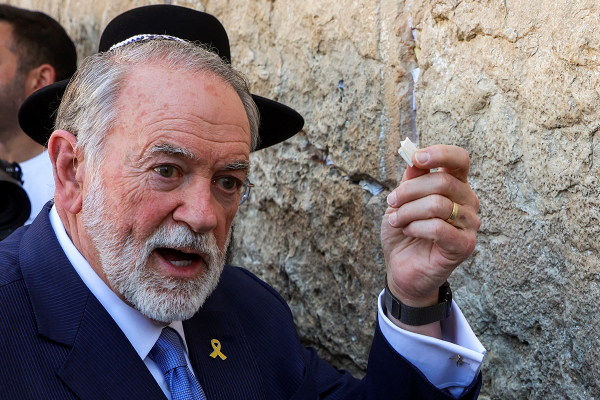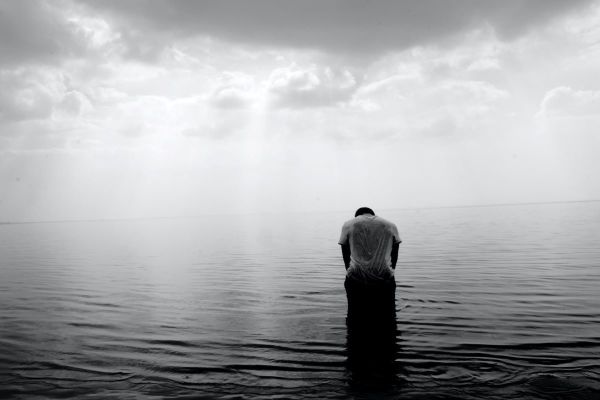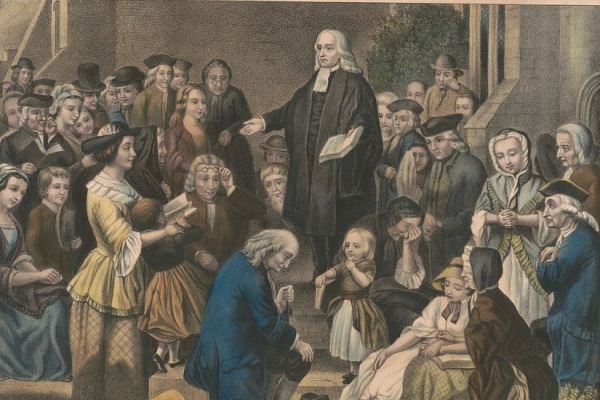'Just Mercy' author Bryan Stevenson on faith, death row advocacy: 'No one is beyond redemption'
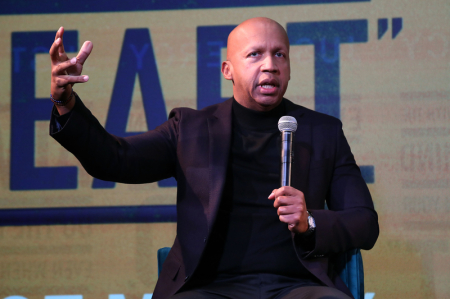
NEW YORK — “Just Mercy” author Bryan Stevenson shared how his faith and “conviction in the Gospels” informs his advocacy work for those on death row and urged the church to reckon with its racial past to better help society come to a place of “restoration and redemption.”
“My faith influences and shapes everything I do,” the 60-year-old public interest lawyer told The Christian Post in a sit-down interview. “I remember growing up and the preacher would read from the prophet Micah: ‘What does the Lord require of you? To act justly, and to love mercy and to walk humbly with your God.’ That has framed the orientation that I have for work and in the kind of life I want to live.”
Stevenson is no stranger to what he describes as “horrific injustice and terrible abuse” within the U.S. justice system. A Harvard-educated human rights attorney and founder of the Equal Justice Initiative, he has dedicated his career to helping the poor, the incarcerated, and the condemned. Over the last 30 years, Stevenson has won reversals, relief, or release from prison for over 135 wrongly condemned prisoners on death row.
“I have advocated on behalf of people who've been condemned because I believe that each of us is more than the worst thing we've ever done, and that belief is rooted in my conviction in the Gospels,” Stevenson explained. “I don't believe anyone is beyond hope, beyond redemption. I believe everyone's life has purpose and meaning and value. That's why I'm committed to defending basic human rights for everybody.”
“I absolutely could not do what I do without faith, without a belief in the unseen," he stressed. "I believed I could be a lawyer even though I’d never met a lawyer until I got to Harvard Law School. I believed we could make a difference on behalf of condemned people even though everybody was telling me there wasn't any precedent for that.
"I've just been taught and raised to believe that you keep fighting, that you keep believing, that you keep trusting.”
It was that faith that led Stevenson from Delaware to rural Alabama — a state that boasts one of the highest death penalty rates — in the 1980s to defend those wrongly condemned or who were not afforded proper representation. One of Stevenson’s earliest and most notable cases, documented in his best-selling book Just Mercy, involved Walter “Johnny D” McMillian, who in 1987 was convicted of murder and received a death sentence for the killing of an 18-year-old girl, despite little evidence proving his guilt.
As Stevenson fought for McMillian and others like him, he faced unabashed racism combined with the legal and political maneuverings of those determined to silence him.
Now, Stevenson’s book is a major motion picture starring Michael B. Jordan, Jamie Foxx, and Brie Larson. Opening Christmas Day, the Warner Bros. drama highlights the importance of grace, justice, and extending mercy to those who seemingly do not deserve it.
Stevenson acknowledged that “Just Mercy” is “tough to watch,” as it deals with racism, injustice, and suffering, adding: “I think it's challenging for people to get close to the inequality or injustice that I see on a regular basis.”
However, he emphasized that familiarizing oneself with stories like McMillian’s is “necessary” because it will “ultimately motivate us to find a way forward.”
“It’s important for us to get closer to people who have been excluded, oppressed, or marginalized because too often we try to create solutions to problems from a distance, and the solutions don't work because they haven't been shaped by what you learn when you're up close,” he explained. “We can't be indifferent to the suffering of other people. We can't become blind to the needs of other people.”
“It’s easy to look away, but if we want mercy, we have to be willing to give mercy and you don't give it to just people who you think deserve it. You have to give it to the undeserving,” he said.
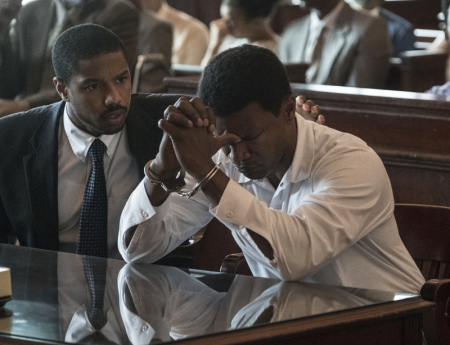
While the film takes place 30 years ago, Stevenson continues to fight the same fight today, even though it’s not “glamorous work” that often reaps little reward.
“I always remember the old gospel song, ‘I wouldn't take nothing for my journey now.’ And that has framed my worldview,” he said. “I’ve been broken by some of the circumstances I’ve been in. I've seen horrific injustice, I've seen people executed, I've seen people terribly abused. And in that moment of brokenness, I have come to recognize that that’s when God's power can be made perfect.”
He cited 2 Corinthians 12, which reads: “For Christ's sake, I delight in weaknesses, in insults, in hardships, in persecutions, in difficulties. For when I am weak, then I am strong.”
“I really believe that, because sometimes it's in brokenness that we appreciate what it means to be fully human,” Stevenson emphasized. “We begin to appreciate what mercy and grace can do to create restoration, to create wholeness and healing. That’s the beautiful thing about faith and it's what continues to sustain me. I think we should not run away from the brokenness we see in people. We should have open hearts and be willing to provide mercy, to share grace and love, because that’s what Jesus calls us to do.”
In addition to his legal work for the EJI, Stevenson is passionate about educating the world about injustice and inequality. The Church, he said, has historically “missed out on opportunities” to stand up for social justice and advocate for those oppressed.
“During the time of slavery, we as a Church allowed people to be trafficked and abused and mistreated,” he said. “We created this narrative of racial difference where we said that black people aren't as good as white people. Too many people of faith were silent after the Civil War. We had a hundred years of terrorism where black people were lynched, pulled out of their homes, beaten, brutalized, drowned, murdered, tortured, sometimes within yards of churches and places of worship, and no one said anything. We had a horrific era of legal segregation, racial apartheid, and the church was largely silent during that period.”
The Church must “reckon” with its history of inaction and strive to work with communities that are “struggling so much to recover from the extreme punishment that we've imposed over the last half-century.” Social justice and the Gospel, he argued, can’t be bifurcated.
“We're not defined by that history, but we have to acknowledge it and that people of faith have a leadership role in causing the rest of the nation to believe that we can get to someplace better,” Stevenson contended.
“Redemption is still available, but we have to repent, we have to give voice to our failings,” he added. “Repentance breeds redemption. Collectively, as a Church, we need to do that.”
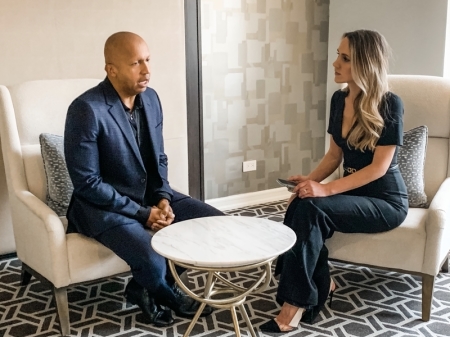
Last April, Stevenson led the charge in opening the National Memorial for Peace and Justice in Montgomery, Alabama. He told CP that the memorial, which honors the more than 4,000 victims of lynching, seeks to help people “reckon with history.”
“We didn't build them to condemn, we didn't build them to punish,” he said. “We built them so they can become portals to liberation, to restoration, to redemption.”
Still, Stevenson said he’s excited by the “emerging consciousness about prison ministry” and the growing number of Christians who “recognize our obligation to provide service and ministry and care to those who are incarcerated.”
“There are 2.2 million people in our jails in prisons, many of whom had been told their lives have no meaning and purpose. We've got 6 million people on probation and parole, 70 million people in this country have criminal arrest histories. When you encounter the barriers created by those experiences, it's easy to lose hope,” he said. “These are folks that the Church absolutely cannot turn their back on. We actually have an obligation to serve them.”
The Church, he stressed “isn’t going to be judged by how well it treats the powerful and the rich and the privileged, by how much money we take in on Sunday services or by how beautifully we can create music.”
“We're going to be judged by how responsive we are to the poor and the neglected and the condemned and the incarcerated, the hungry,” he declared. “We are called in the Gospels to visit those who are in jails and in prisons and to stand with those coming out of those spaces."
"Historically," Stevenson added, "faith communities have sort of ignored that calling, but I see that changing, and that’s an exciting development that I hope we can hold on to.”










